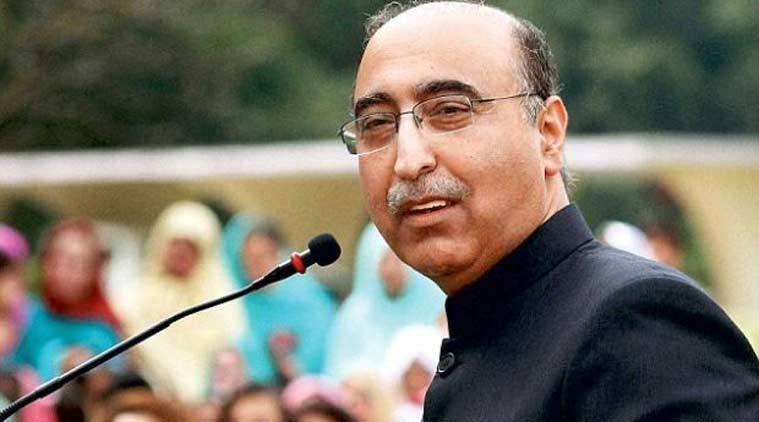NEW DELHI: Pakistan High Commissioner to India Abdul Basit says that Pakistan wants to have a normal and peaceful relationship with India on the basis of sovereign equality and mutual interest.
Talking to Foreign Correspondents in New Delhi, the High Commissioner said there is no short cut to achieve a lasting peace and nor does cherry-picking work.
He said that India does not want comprehensive talks with Pakistan and this is the reason peace process if suspended between both the countries. There are no chances of Indian investigation team to visit Pakistan, he added. He also said that Pakistani government knows about elements causing unrest in the country and also know about those behind such elements.
Arrested RAW agent is the confirmation of Pakistani stance, he added. “The recent arrest of Kulbhushan Yadav in Pakistanirrefutably corroborates what Pakistan has been saying all along. We all are aware of those who seek to create unrest inPakistan and destabilize the country. They are bound to fail as the people of Pakistan are united to effectively counter anti-Pakistan subversive activities,” the HC said.
He said that Pakistan is optimistic about India’s participation in the scheduled SAARC summit in Islamabad.
“The 19th SAARC Summit will be held in Islamabad in November this year. We sincerely hope the Summit, building on the past achievements, would help create more synergies and win-win situations,” Basit said.
He said fair and just resolution of Kashmir issue as per the aspirations of the people of Jammu and Kashmir is imperative and attempts to put it on the back burner will be counterproductive.
“Let’s be realistic. It is the Jammu & Kashmir dispute that is the root cause of mutual distrust and other bilateral issues. Therefore, it’s fair and just resolution, as per the aspirations of the people of Jammu & Kashmir, is imperative. Attempts to put it on the back burner will be counterproductive,” Basit said.
The peace process between India and Pakistan has been "suspended" and there are no talks scheduled between the two countries, Abdul Basit said.
Asked at the Foreign Correspondents Club about a meeting between the foreign secretaries of the two countries, Basit said: "There is no meeting scheduled for now. I think at present the peace process is suspended."
"India is not ready as yet," Basit said, but quickly added that "we can only resolve issues through dialogue".
This is the first official word from Pakistan about the latest breakdown in the now-on-now-off peace process with India.
He was speaking in the background of the January 2 Pathankot terror attack, which killed seven security personnel. The attack has stalled the resumption of dialogue between the two sides.
Evading a direct comment on the possibility of NIA team visiting Pakistan for Pathankot terror probe, Abdul Basit said, "It is not about reciprocity but co-operation of our two countries."
He said the Zarb-e-Azb operation against terrorism and militancy is yielding good results.
He said Prime Minister Nawaz Sharif strongly believes in enhancing regional cooperation and connectivity. However, a strong regional cooperative structure cannot be built on unpredictable bilateral relations. We need to move on all fronts simultaneously if we are to benefit from the opportunities unleashed by globalization.
He said Pakistan is an important member of the international community. “Our contributions in developing non-discriminatory and effective multilateral frameworks, ranging from security to economic cooperation to human rights issues are recognized the world over,” he said.
Basit said: “Pakistan, a country of 200 million people, is blessed with enormous resources. We have begun our march towards stability and prosperity. Nothing can detract us from realizing our potential.”
“Our economy is also showing signs of recovery. Macro-economic indicators are encouraging. There is special emphasis on infrastructure development and energy projects. With growing foreign investments the overall economic situation is steadily improving,” he said.
“Pakistan straddles South Asia, Central Asia and West Asia. Our country is therefore destined to become a regional economic hub. And the world will see this happening sooner than later,” Basit remarked.






